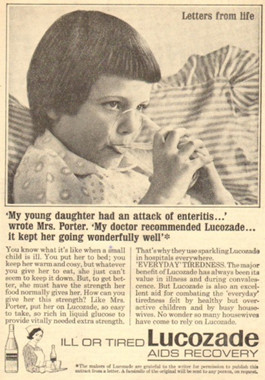The Project
The project 'Body, Self and Family: Women's Psychological, Emotional and Bodily Health in Britain, c. 1960-1990' is funded by the Wellcome Trust. It aims to create an intersectional history of gender, body and the self from bottom-up rather than the top-down.

We still know little about the everyday health experiences of women in the postwar period, when the pattern of their lives changed almost beyond recognition. Mass entry into the workforce, second-wave feminism, declining marriage and birth rates, rising divorce rates, and the development of new contraceptive and reproductive technologies meant that many women now expected to lead very different lives to those of their own mothers and grandmothers. We ask: How were these social and cultural changes experienced by individuals? How and in what ways did these shifts alter women’s emotional wellbeing and their relationships to their bodies? In turn, how were these experiences mediated by age, class, ethnicity and sexuality? In answering these questions, we will generate new approaches to researching female subjectivity and bodily experience, and revolutionize historical understandings of women’s experiences of health, reproduction, and medical technologies and practices.
In this project, we employ a capacious definition of 'health' that recognizes the interplay of body, mind and emotion in all experiences. The project explores five wide-ranging themes:
- youth and ageing;
- the reproductive body;
- psychological and mental health;
- structures of health communication, focusing on relationships of authority and expertise;
- the influence of technology.
It draws on oral history interviews, mass-market and feminist magazines, Mass-Observation directives, and archival material on health journalism and feminist, LGBT, and BAME activism. We are using this material not only to discover the hidden histories of women’s experience in this period, but to address theoretical questions on the relationship between representation and experience in historical research, and develop methodologies to probe these gaps. In addition to our research aims, we are also undertaking work with community groups and schools, using historical resources to improve the emotional health and wellbeing of adolescents.

